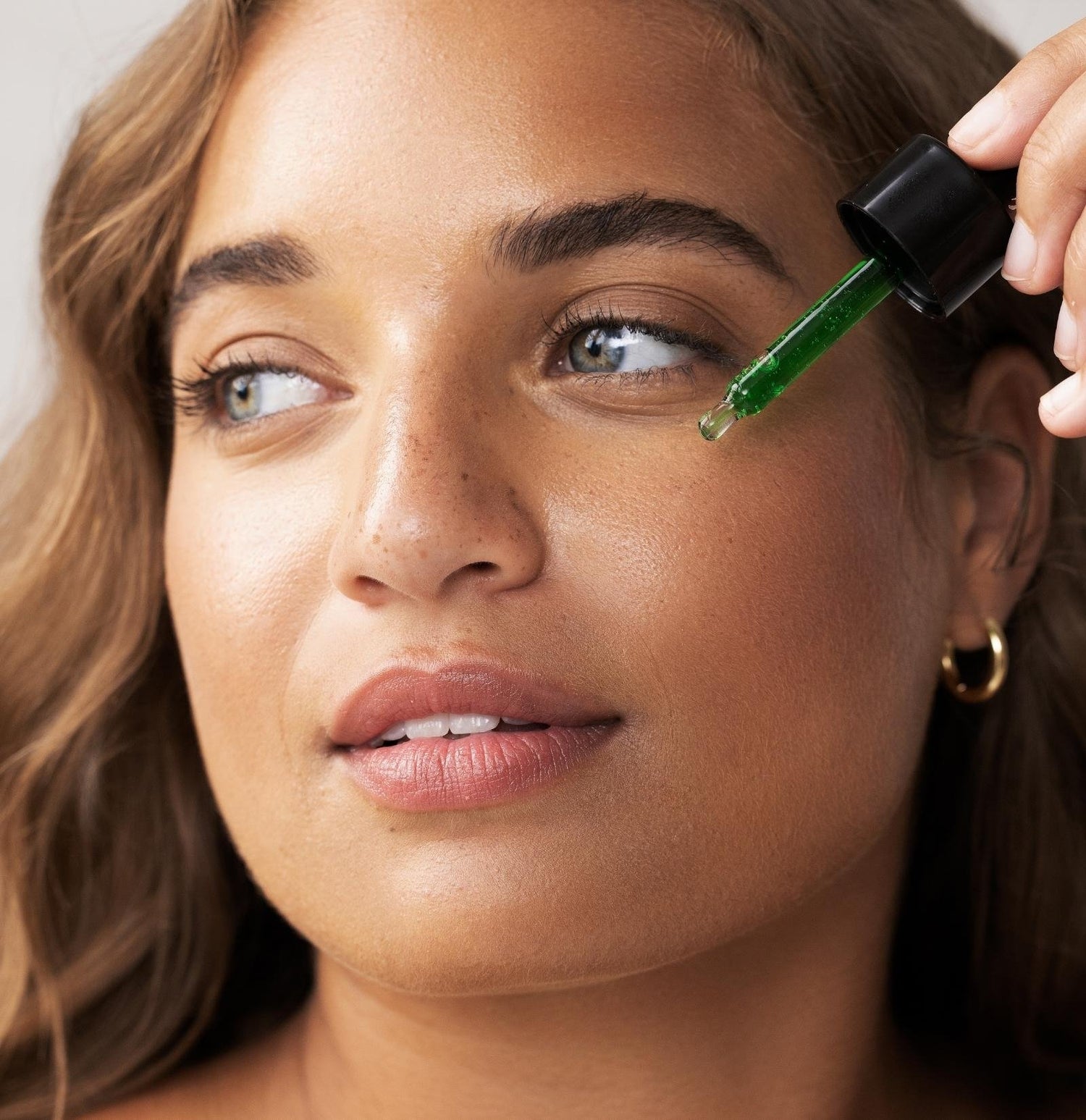Do you know what your cycle is? Or how to understand the various hormonal fluctuations during your cycle, so you can truly get to know your body and what it needs? Let’s break it down and discuss the phases of your cycle.
Day 1 of your cycle starts with day 1 of when you begin bleeding. A typical cycle length can be from 25-35 days (the first day you bleed to the next first day you bleed). You can track your cycle on free apps such as Flo, Apple Health, Clue or more advanced tracking apps like Tempdrop or Natural Cycles.
Day 1 through ovulation is considered your follicular phase. This is a great time in the cycle to be productive, take on extra work and events, and have great workouts because your energy is typically high and your body is more resistant to stress. This is also generally a time during the month when our skin is clear and glowy!

Great foods to add in to support the follicular phase are things like: flax seeds, pumpkin seeds, grass fed beef, bone broth, celery, wild caught salmon, olives, cashews and chickpeas.

Mid-cycle is when we typically ovulate. Ovulation is the true star of the menstrual cycle because without it, we won’t produce progesterone. Lack of progesterone means you will experience a hormone imbalance. Ovulation occurs on just one day, however, 5-6 days prior to ovulation is what we often call your “fertile window” because sperm can live for up to 3-5 days. Why this matter is because if sperm are alive in your uterus a few days before you ovulate, you can get pregnant even if you don’t have intercourse on the day of ovulation. During your fertile window, you can expect to see more egg white consistency of your mucus (which is a great sign of fertility!), you may notice an increase in libido and energy, and you might even notice a bump in hunger and metabolism.
Because estrogen and testosterone may be surging during this time, some people notice breakouts or acne appear during ovulation (about two weeks before your period). If this happens, you might want to look into ways you can balance blood sugar levels and manage stress, since progesterone and ovulation are very impacted by our cortisol.
Because ovulation is heavily impacted by stress, it is crucial to make stress management, a nutrient dense diet, sleep management and a balance of activity a priority for healthy and balanced hormones, whether fertility is your goal or not. Even if you are not trying to get pregnant, you still want to be ovulating to ensure you make progesterone and to ensure your hormones stay balanced.

Progesterone is produced after we ovulate. Progesterone is responsible for increased metabolism, and you might notice an increase in heart rate and body temp as well. If you are tracking your temperatures, you will see a 0.5 degree bump around your fertile window, and after ovulation you should see a steady rise in temperature for the remainder of the month.
This phase is called your luteal phase. Because progesterone can make you more insulin resistant, it's crucial to make sure you are consuming balanced meals with protein, fiber, fat and starch (eating it in that exact order helps improve blood sugar levels post-meal). Other foods to consume during this time are sunflower seeds, sesame seeds, cruciferous veggies, squash, green bananas, sweet potatoes, sprouts, carrots and beets.

Right before your period, you might notice a decrease in temperature–that is a good sign that bleeding is on its way. Before your period, your hormones will all dip, signaling to the body to shed the uterine lining.
So what if you breakout before your period? This is very common! That can be from hormonal imbalances (ie, too much estrogen, not enough progesterone, too high of testosterone or a mix of all the above). Regular bowel movements (at least 1-3 movements a day) are key to helping your body clear these hormones.
Things to consume the week before your period include: ginger tea, turmeric and anti-inflammatory foods, especially if you are prone to cramping.
If you are experiencing hormonal issues or breakouts, it is important to dig deeper and find out what the root cause is for your concerns. Hopefully understanding a little more about your cycle and what fluctuations are happening makes you feel more educated and empowered about your monthly cycle.
Because of so many monthly hormonal fluctuations, we place a huge importance on liver health, especially when it comes to our skin. Why? The liver and other various detox organs play a crucial role in supporting hormones. Your liver is a filter and processes everything in your bloodstream. Because our liver is a filter constantly recycling our hormones, environmental toxins, cortisol, cleansing the blood and so much more, it is easy to understand why it can be bogged down and not working optimally, especially in the world we live in today. The good news is that there are so many things we can do on a daily basis to support and love our liver, which in turn results in glowing skin and healthy hormones!
Here are some of my favorite ways to support my liver on a consistent basis so that my hormones and skin can thrive!
-Castor oil packs: I wear these every single night they help support detox and also can boost progesterone production and help with fertility.
-Herbs like dandelion and burdock root: very cleansing to the liver and clinically I see these work wonders for hormonal-based acne
-Daily bowel movements (1-3x day). Great way for removing excess hormones and supporting natural detox
-Avoid environmental toxins the best you can: artificial fragrances, pesticides, chlorine and fluoride, conventional cleaning products, mold, medications, plastics (BPA), processed foods etc.
-Liver loving foods: beef/chicken liver, leafy greens, beets, garlic, eggs, green tea, cruciferous veggies
Bio:
Dr. Halie Schoff is an outspoken women’s health expert and Functional Health Practitioner. Through her years in practice, she has worked to help women optimize their hormones naturally and become empowered about taking their health into their own hands so you can be your own advocate.
@drhalieschoff on Instagram


